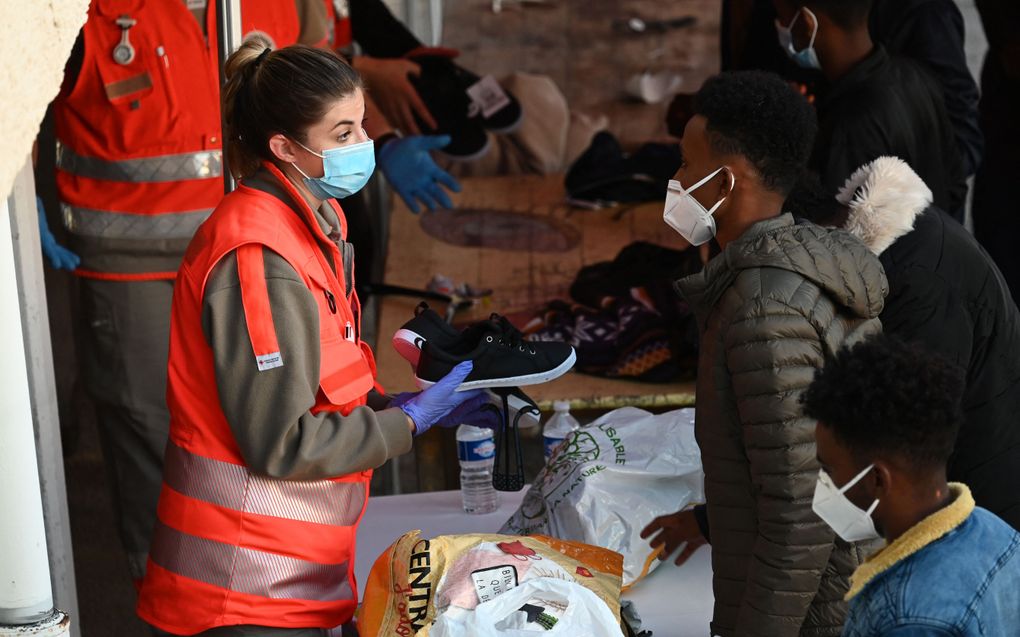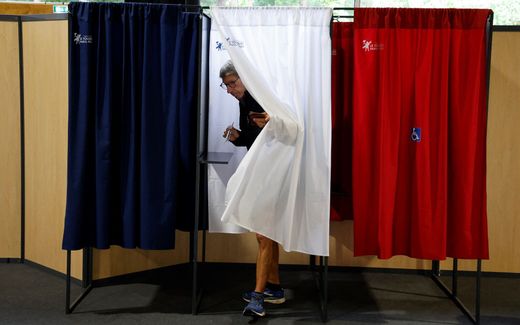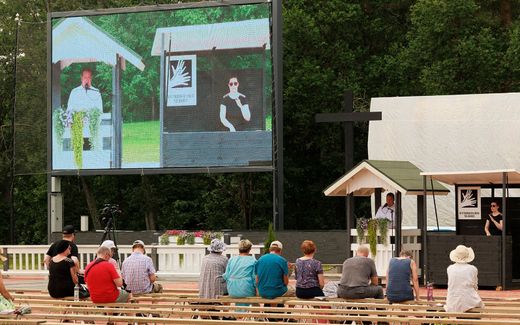Weekly column from France: Without migrants, we would not be where we are now

A member of the Red Cross (L) gives shoes to a man rescued by the Ocean Viking rescue ship of European maritime-humanitarian organisation "SOS Mediterranee", as he arrives at the "Giens Cap Levant" holiday camp in Hyeres, southern France. Photo AFP, Christophe Simon
Christian Life
On 11 November 2022, the newspaper Le Monde ran the headline "Ocean-Viking": the arrival in Toulon is "the end of a three-week ordeal". The 230 people on this boat chartered by a humanitarian organisation are finally safe. They were tossed around for twenty days on the waters of the Mediterranean waiting for a port of refuge. Among them were about fifty children.
After numerous negotiations between European countries, particularly with Italy, the French government finally agreed to take in this handful of migrants from sub-Saharan Africa, Bangladesh,Syria, etc.

Marc Derœux (1965) is a French pastor, connected to the Baptist Federation (FEEBF).
At the moment, he serves as the director of the language school Center des Cèdres in Massy (near Paris).
Before, he served as a minister in Lille, Lyon and Valence. He is involved in the National Council of Evangelicals in France (CNEF).
Derœux is married to the schoolteacher Catherine, with whom he has three children.
When I see the television reports, I have an ambivalent feeling. I am proud to be a member of the country that has opened its doors to these children, women and men who have fled, in perilous conditions, from situations of war, famine, extreme poverty and unimaginable violence. However, I am surprised, even shocked, by the controversy that this reception of so few people is causing among politicians and the media. Moreover, I am surprised to hear that this solidarity is granted on an exceptional basis when the slogan "France, land of welcome" has resounded with strength and beauty since my childhood.
I grew up in the north of France, known for its coal mines. There my father worked for 35 years. In the housing estates reserved for the miners' families, French, Italian, Polish, Arabic, etc. were spoken. Without this foreign migrant workforce, the mining industry would not have been able to keep up with the frantic pace of its then-flourishing production.
In this real 'melting pot', my parents taught me respect for others, no matter where they came from, and that the word 'welcome' should be lived rather than proclaimed like a mantra. Their Christian faith, imbued with the values of the Gospel, reminded them that for the God of the Bible, believers are somehow all migrants too.
In Western and European countries, the imprint of migration is very present. Few people can claim to be of a particular nationality. Unfortunately, mixing has often been fought against, with its share of horrors. Yet it is a richness that we must know how to preserve and enhance. Our countries should reread their histories to remember that migration has been a blessing for their economic and intellectual development.
I am also surprised to hear the reticent, even contemptuous, discourse of some Christians regarding the reception of migrants. I like to remember what the apostle Paul wrote to the Christians in Rome: "Welcome one another as Christ has welcomed you." In Jesus, God does not look at our nationality, our country of origin, to recognise us as his children, in full confidence, by faith.
Of course, I understand that we must organise our welcome in such a way that it is truly lived in dignity and respect. For all that, let us not remain indifferent, sceptical, or hesitant when faced with the arrival of children, women and men who are looking for a land of welcome. For them and with them, we can build a peaceful life, a future of hope. And who knows, one day it may be us in their place!
Related Articles






